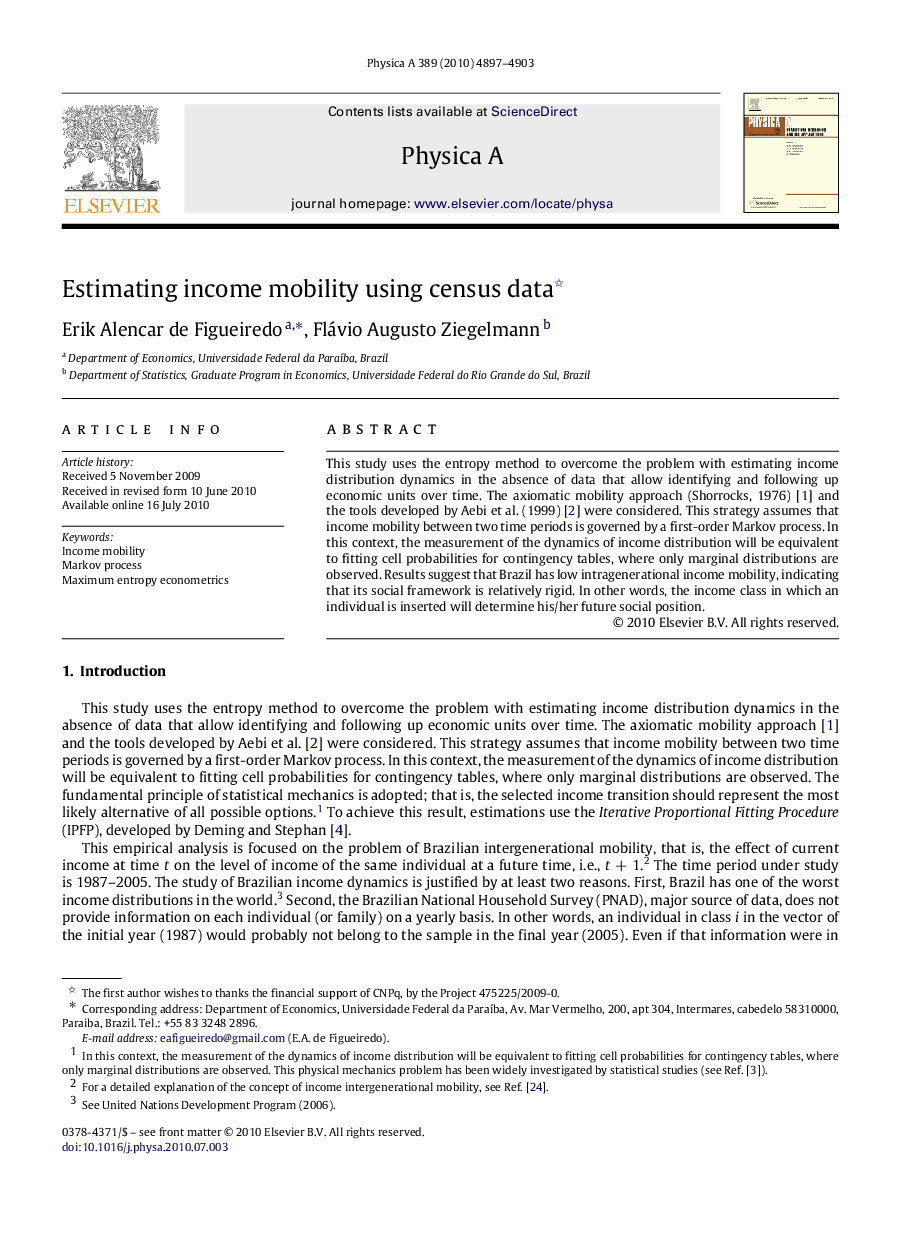| Article ID | Journal | Published Year | Pages | File Type |
|---|---|---|---|---|
| 978908 | Physica A: Statistical Mechanics and its Applications | 2010 | 7 Pages |
Abstract
This study uses the entropy method to overcome the problem with estimating income distribution dynamics in the absence of data that allow identifying and following up economic units over time. The axiomatic mobility approach (Shorrocks, 1976)Â [1] and the tools developed by Aebi et al. (1999)Â [2] were considered. This strategy assumes that income mobility between two time periods is governed by a first-order Markov process. In this context, the measurement of the dynamics of income distribution will be equivalent to fitting cell probabilities for contingency tables, where only marginal distributions are observed. Results suggest that Brazil has low intragenerational income mobility, indicating that its social framework is relatively rigid. In other words, the income class in which an individual is inserted will determine his/her future social position.
Keywords
Related Topics
Physical Sciences and Engineering
Mathematics
Mathematical Physics
Authors
Erik Alencar de Figueiredo, Flávio Augusto Ziegelmann,
